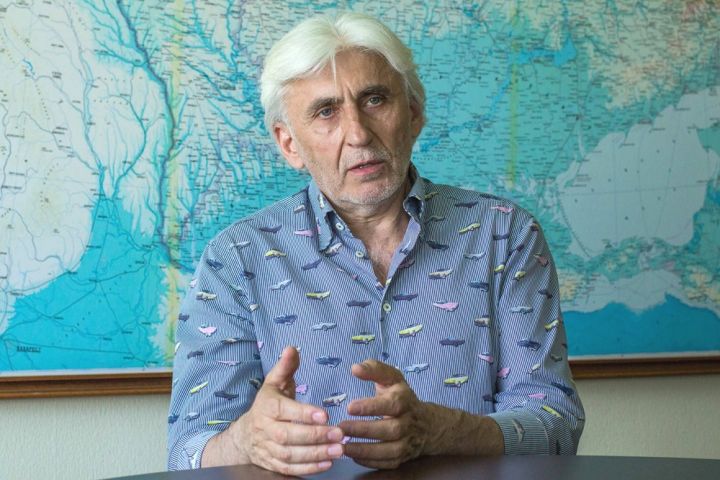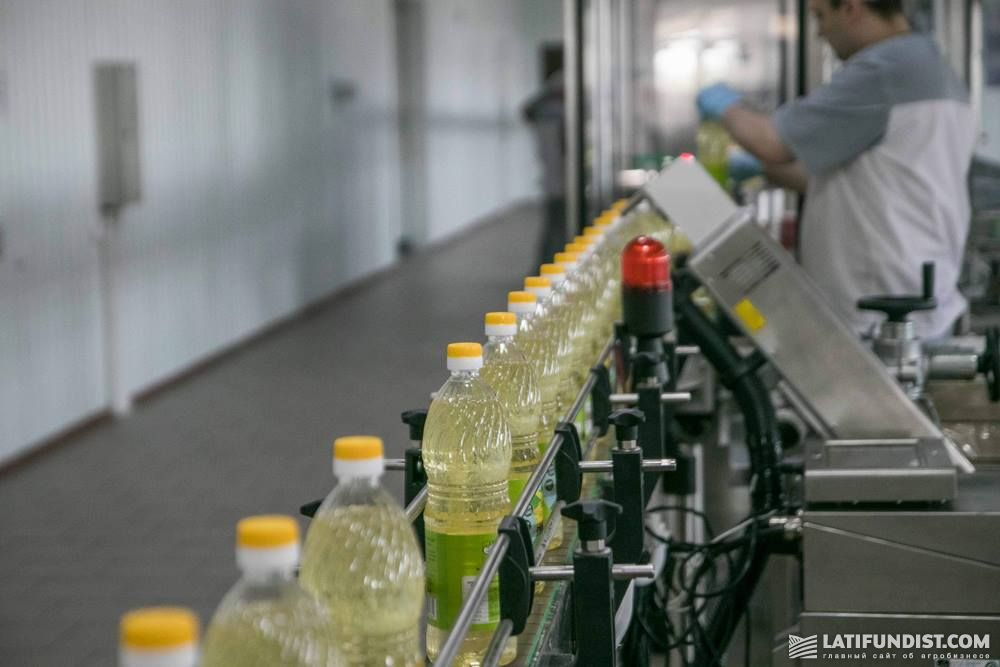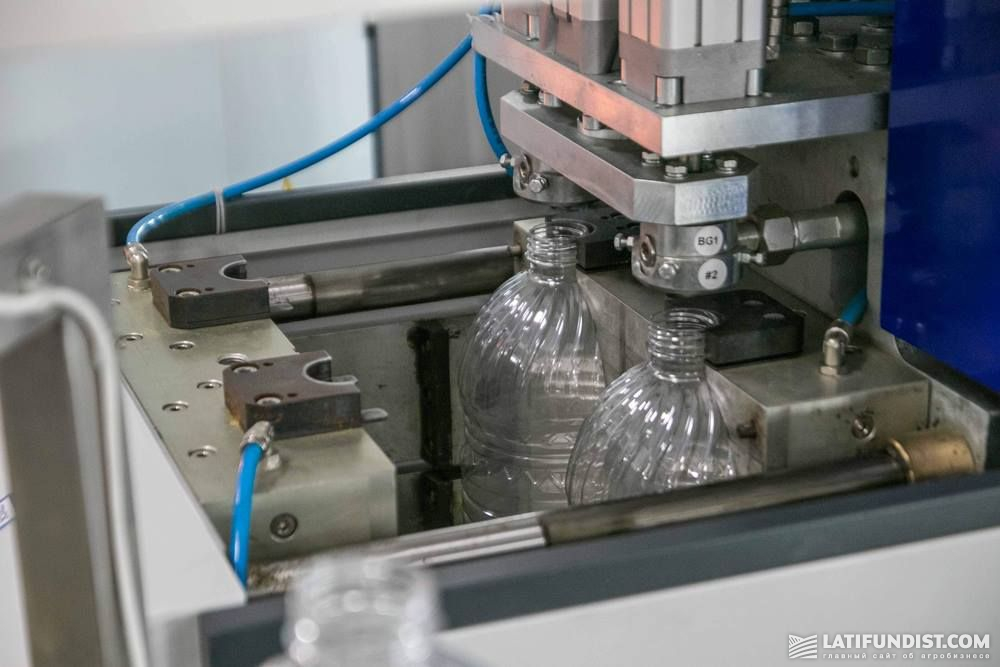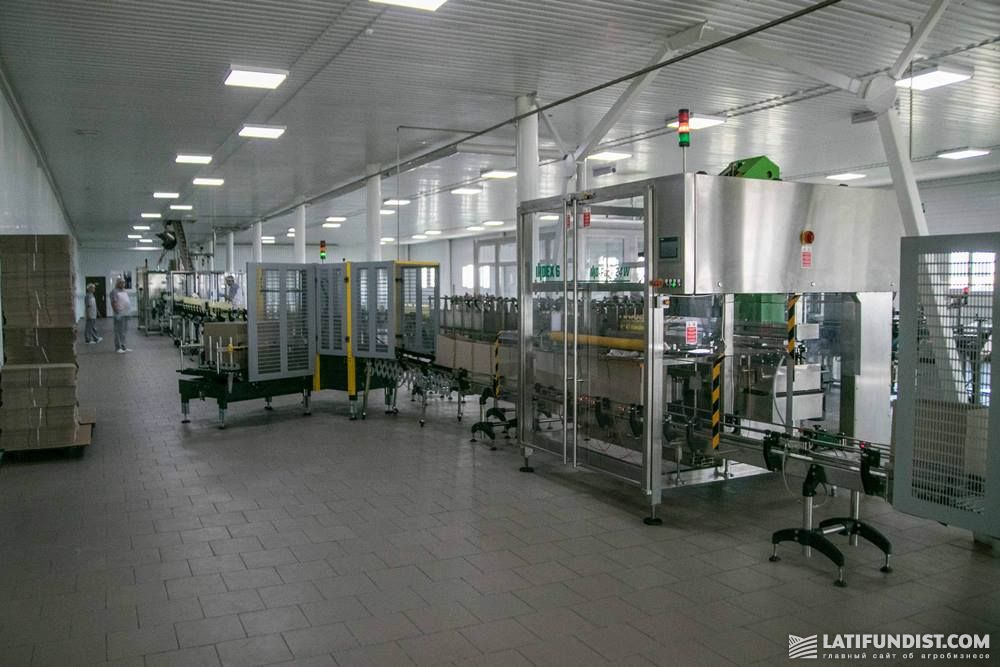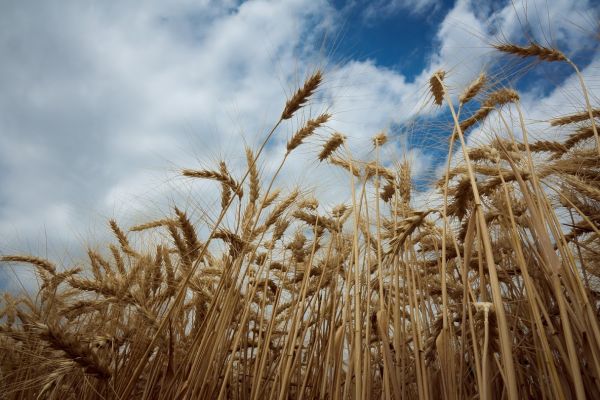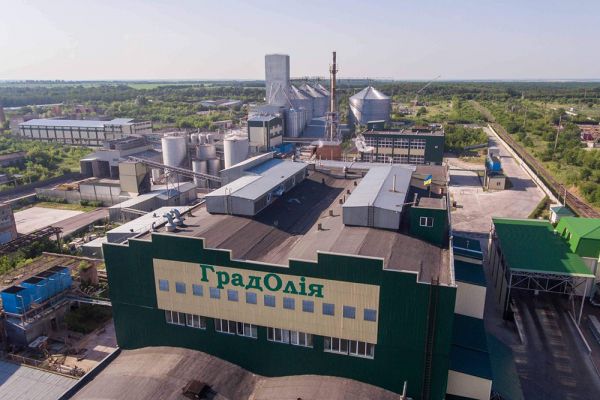GradOil: Sunseeds Shadow Market Weights 2-3 Million Tons
Ukraine is the key world supplier of sunflower oil. This result was achieved due to the development of the industry and a stable increase of oil crushing capacity. Agriproducers on their part support this increase — since 2001 sunflower planting areas have tripled. To date, more than 30 refineries are engaged in sunseeds processing. Stanislav Tarshin, the owner of the GradOil Group of Companies, spoke about the sunflower shadow market, production of high oleic and fortified oil, and the peculiarities of entering the Chinese market.
Latifundist.com: How did you get into the oil and fat business?
Stanislav Tarshin: In 1987 I got a job as an auto mechanic at Kirovograd Oil Extraction Plant, the second-largest in Ukraine. I was promoted from the head of the car park to the head of the sales department. In 1997, at the shareholders' meeting, I was elected Chairman of the Board. I took over the plant under my leadership in tough times. At that time at least 12 sunflower seed processing plants were operating in Ukraine. A year later all facilities had to stop as there was no supply of raw materials — all produced sunseeds were exported. For your understanding, I will give a single figure: the net profit of exporters per ton of raw materials was about USD 100.
But let's get back to the nineties. About 20% of the employees left the refinery. The rest believed in me as a manager and in themselves. We started equipment repairs and maintenance of production facilities. It lasted for nine months until the government introduced a 23% export duty on sunflower seeds. After that, the oil and fat industry started reviving, and today Ukraine accounts for more than 32% of the world production of sunflower oil.
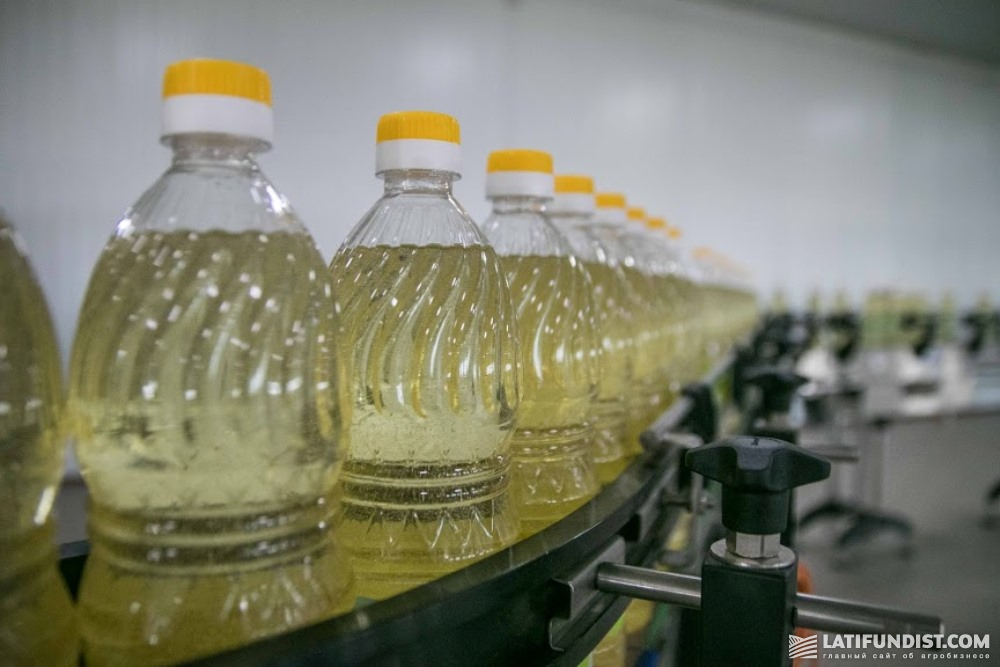
Latifundist.com: How did you come up with the idea to open your own oil crushing plant?
Stanislav Tarshin: In 1998, the plant merged with Allseeds, a grain trading company exporting grain and sunflower seeds. They had a financial capacity, and we had a production one. During this time we made reconstruction, increased production volumes, started managing another plant, built two transshipment facilities. In 2010, the company was taken over by Kernel and all the team members left. That's when I started planning my own project. A year later, I started building a plant that would process two types of raw materials: sunflower and rape. Both own and borrowed funds were attracted for the construction. Already in 2012, we managed to launch the production process.
Latifundist.com: How is the work with suppliers organized? Do other companies compete with each other, for example, your neighbour Kernel?
Stanislav Tarshin: Since the plant's launch, there has been no competition with either Kernel or other companies operating in the region like Allseeds and ViOil. There is a healthy competition. We set about the same price, and we do not deceive or suppress anyone. Everyone has enough. The main things are reputation, trust and normal relations.
Latifundist.com: Do you have loyal suppliers?
Stanislav Tarshin: Around 80% of suppliers remain unchanged. The company has a good name in the region, so we are trusted. Some leave, some start cooperating with us again, but the base suppliers remain the same. If, for example, the supplier needs money today while the produce can be delivered tomorrow, we make advances. If he has the opportunity to deliver it today and we have the opportunity to pay tomorrow, they give us such an opportunity.
Latifundist.com: There is an opinion that the capacity of sunflower processing in Ukraine is much higher than the yield. Is it true?
Stanislav Tarshin: Statistics does support this. But I already heard about it 20 years ago, when I was taking over my first refinery. Since 1998 there hasn't been a single year when the plants had nothing to process. There are situations when they stop for 1-2 months, but cases are mainly related to sales. That is, the volume of crop grown corresponds to the current production capacity.
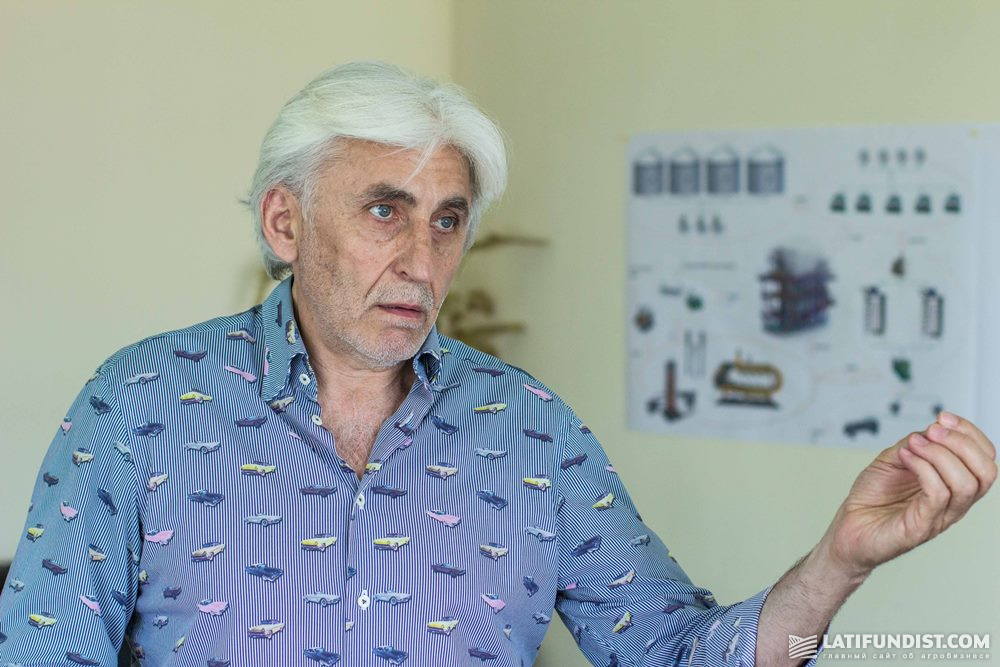
Latifundist.com: For several years, it has been reported that the volume of exported products was higher than the declared planted areas could ever produce. Experts say that the shadow market of sunflower seed is one million tons, or perhaps even more.
Stanislav Tarshin: Undoubtedly more. This statistics is non-transparent and, most likely, 2-3 million tons are simply not taken into account. In total, all Ukrainian processors produce about 6 million tons of sunflower oil. We consume about 600 thousand tons of sunflower oil, the rest is exported. There is enough raw material, so the plants are fully functioning. Last year, for example, some farms had carryovers from the previous season.
Latifundist.com: Have you considered the production of high oleic sunflower oil? Some say it's a potential oilseed crop, while others say the situation with the niche crops when everyone rushed to production and sent the price down may repeat.
Stanislav Tarshin: Well, we considered this option and we even studied this market. We gained an insight into the high-oleic raw material processing and came to the conclusion that this is a niche business. It is not applicable to our enterprise today as there must be a stable demand. I know that some Ukrainian producers have been working in this direction for several years already. We are not ready to make the final decision yet.
Latifundist.com: The oil crushing plant operates on two types of raw materials. Is it more profitable to produce sunflower or rapeseed oil?
Stanislav Tarshin: It depends. Last year it was more profitable to produce rapeseed oil, whereas in the 2016/17 season — sunflower oil. It is yet unclear what will this year be. Everything depends on the quality of rapeseed (GMO presence, oil content). The world market apart from setting prices for finished products also dictates its conditions. But in general, it is profitable to produce both kinds of oil since there is a stable demand.
Latifundist.com: What other products does your enterprise produce?
Stanislav Tarshin: Along with oil, we produce oilseed meal and phosphatide concentrate. The latter is in great demand in Europe. It is involved in lecithin production, which is used in confectionery, bakery and medical industries.
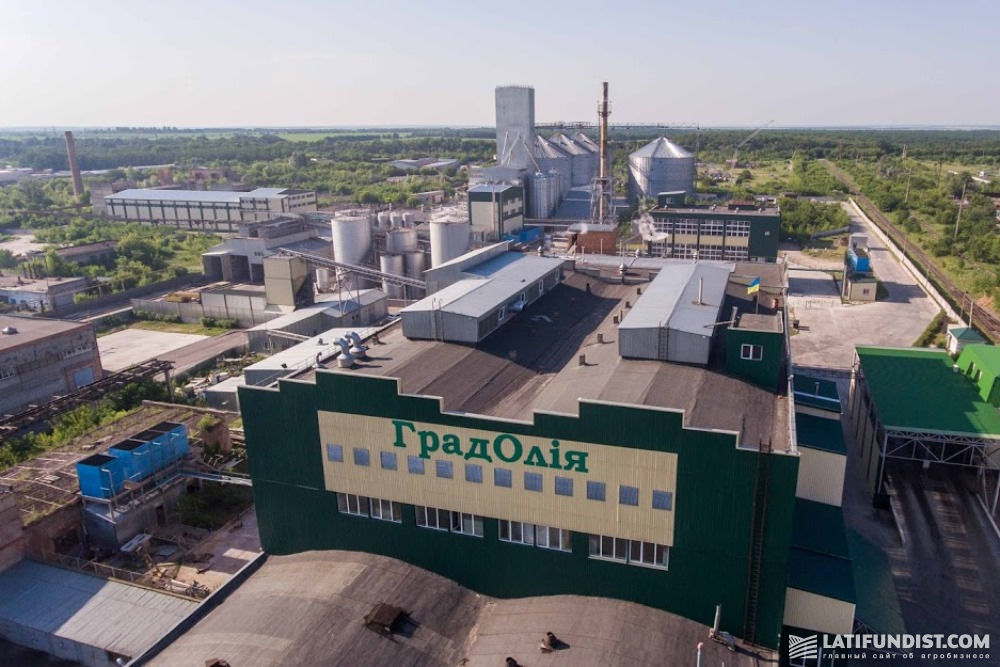
Latifundist.com: How did the idea of launching a refinery and a packaging facility develop?
Stanislav Tarshin: We knew there would be a second plant at the design stage of the first one because the goal was to reach the end-user. How can we do that? Open a sunflower oil refinery and a packaging facility, which we did. The construction took about 10 months.
Latifundist.com: How much money did it take to start the production? How long does it take for the refinery to pay off?
Stanislav Tarshin: USD 9 million was invested in the plant, 70% of which was bank financing. We expect the plant to pay off in 4-5 years.
Latifundist.com: Which equipment was installed?
Stanislav Tarshin: The plant was equipped by the Ukrainian company TAN, a producer well-known not only in Ukraine but also abroad, in particular, in Germany and China. One should not only import equipment but also choose from domestic manufacturers competing in the world market. We have our own flagships of domestic production, willing to learn to produce something new. In Ukraine, producers know how to build complex equipment, for example, extractors, which are already installed at three refineries. Those are by TAN too.
Latifundist.com: What is the production volume?
Stanislav Tarshin: The designed capacity of refining and deodorization is 240 tons per day. We fill 170 t in bottles daily (0.85 l, 1 l, 3 l and 5 l bottles). A month ago we started filling oil in 10, 18, 20 and 25-litre canisters, 50 tons per day.
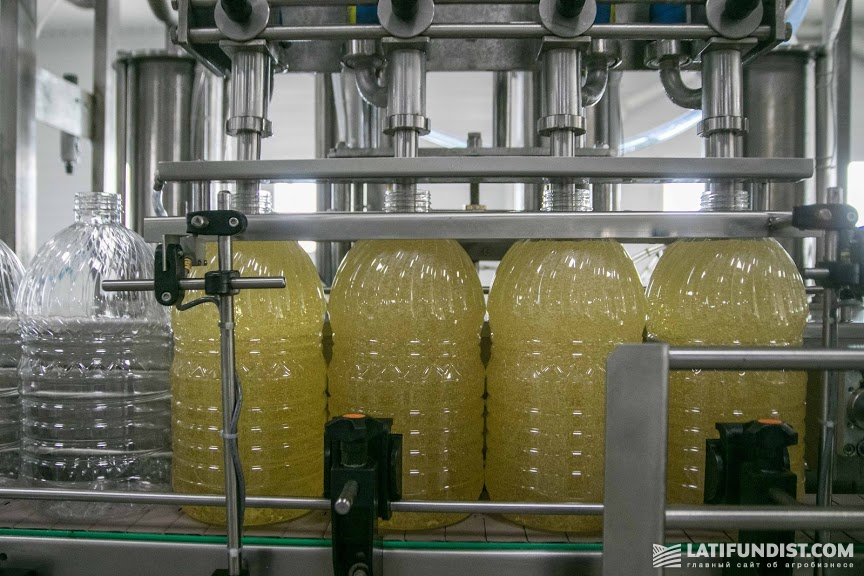
Latifundist.com: Is it the package products are exported in?
Stanislav Tarshin: Yes, foreign partners order products in such containers. Earlier this year, the first containers were shipped to Europe. Then, plastic 20-litre canisters were delivered to Arab countries. Our products are in demand in African countries. It is not only the quality of the oil that matters to them but also the fact that the containers can then be used in household needs, for example, for transporting water or oil products. In total, our refinery offers 5 types of packaging for the finished product. We are trying to satisfy the needs of our customers, who have become more demanding. For example, one wants to order a container with the various assortment (1 l, 5 l, etc.). We provide it, and he does not have to search for an assortment from other manufacturers. It is important for us because the competition in the market instructs us how to meet the client's needs.
Latifundist.com: GradOil is an export-oriented company. Does it mean that 100% of sunflower oil produced at the plant is exported?
Stanislav Tarshin: It is so. The lion's share of produce is supplied to the Middle East, Asia and Africa. We export products to Europe. The process of developing the Latin American market has begun, in particular, our sunflower oil is already being sold in Venezuela and Suriname. We are also developing the Chinese market.
Latifundist.com: What share does the Chinese market hold in the export structure?
Stanislav Tarshin: In the long run, it holds a significant share. We are just beginning to actively cooperate with China. Since May, we have been sending test parties of goods to local retail companies. I think that Ukrainian sunflower oil producers will very soon take over this market. As a rule, the Chinese use soybean, palm, rapeseed and peanut oil quite a lot. Late last year, however, the state reduced the import duty on sunflower oil to 9%. This decision was made to increase the supply of quality imported foodstuffs. This is what made Ukrainian products affordable for local retail customers. Moreover, notable is the exactingness of the Chinese customer not only to the quality of the product but also to the package design.
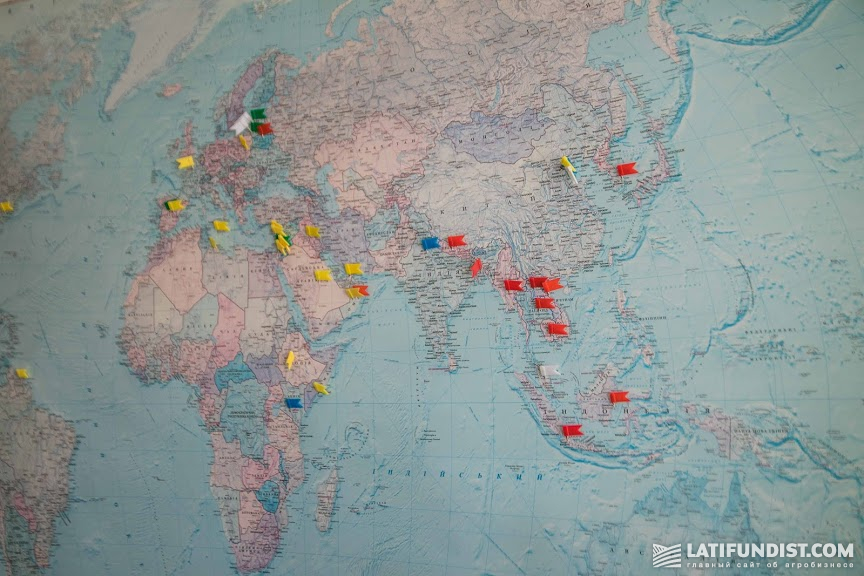
Latifundist.com: Besides packaging, do customers have specific eating qualities requirements?
Stanislav Tarshin: Vitamin enriched oil is in demand in the African market. Having taken this trend into account, we have ordered a special unit for the production of this product. I think in 2 months we will launch the production. The installed equipment allows us to add vitamins to the product at the customer's request. In Ukraine, such production is not new, and our colleagues have already successfully mastered it.
Latifundist.com: Back-yard production of sunflower oil thrives in Ukraine. What is the difference between a product originating from such oil mills and one produced in refineries with modern equipment?
Stanislav Tarshin: First of all, it lies in production technology. At our factory, sunflower oil is produced under the European technology so that in the end the natural vitamin balance is kept. And at the back-yard oil mills, it is crushed under primitive technologies, thus the end-product turns out to be of poor quality.
Latifundist.com: The issue of the shadow oilseeds market is rather relevant. To what extent are you, as a producer of quality products, influenced by an unhealthy competition created by oil mills?
Stanislav Tarshin: To be perfectly honest, they harm not only the fat-and-oil industry but also the state as a whole, because they allow unaccounted seeds for processing, about 2-3 million tons annually. This is the shadow economy the state is fighting against. But there are also small transparent market players. Small factories have the necessary certificates, do transparent business and are authorized for exporting raw materials.
Latifundist.com: What are the greatest challenges in terms of doing business?
Stanislav Tarshin: Today, the main problems for all those who do business are high taxes, high interest rates on bank credits, lack of state financial assistance and protection. The issue of enterprise presentation in international markets is relevant. No state assistance is provided here. We participate in international exhibitions at our own expense. Although we represent not only our business but the country as a whole.
Latifundist.com: You have mentioned high interest rates on loans as one of the challenges. Which banks do you work with?
Stanislav Tarshin: High interest rates on loans are the whole banking system issue, not a particular bank. Speaking of partner banks, we cooperate with Credit Agricole Bank, OTP Bank, Raiffeisen Bank Aval, FUIB, Accord Bank and Creditwest Bank. It should be noted that despite the fact that the banks also operate in complex economic conditions, they meet our needs by developing new banking products and services.
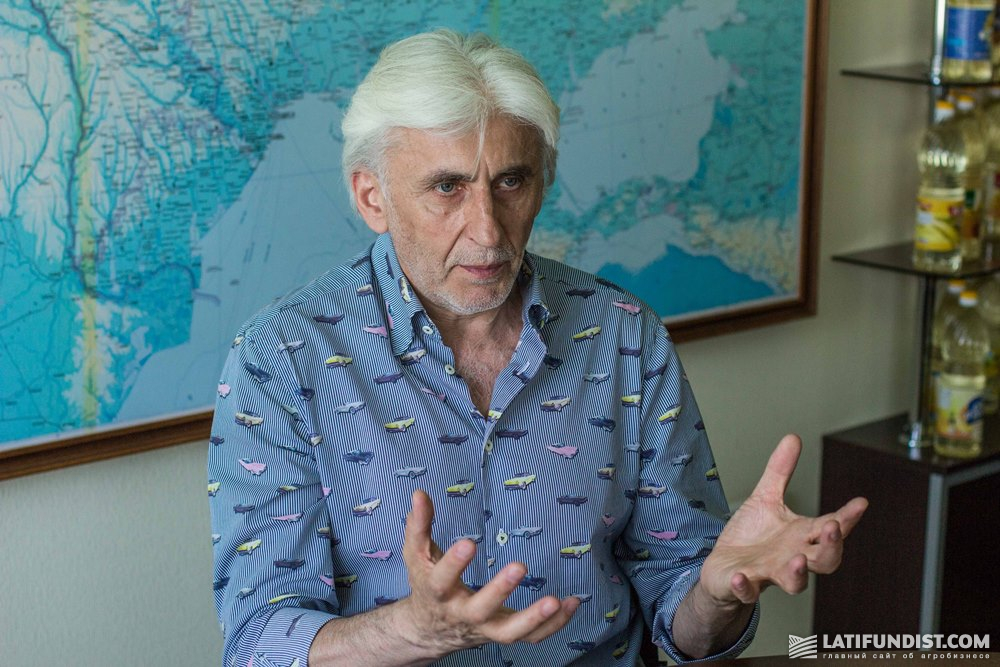
Latifundist.com: What tasks do you set for the future?
Stanislav Tarshin: If we talk about short-term objectives, then in the coming marketing season we plan to fully utilize our refining and packaging capacities and enter the top 3 exporters of packaged products in Ukraine. If we talk about long-term projects, we plan to expand in the next 5 years, but everything will depend on the readiness of foreign markets to buy our finished products. We plan to produce more rapeseed oil, for which we are studying in-depth the demand for this type of products from our customers.
It is worthwhile to mention here that although there is quite a high level of competition in the world market of sunflower oil, nevertheless, taking into account the quality indicators, Ukrainian products are highly valued by foreign partners. Today, the group of companies GradOil supplies sunoil to 30 countries and is set to develop new markets.
Konstantin Tkachenko, Natalia Rodak, Latifundist.com

